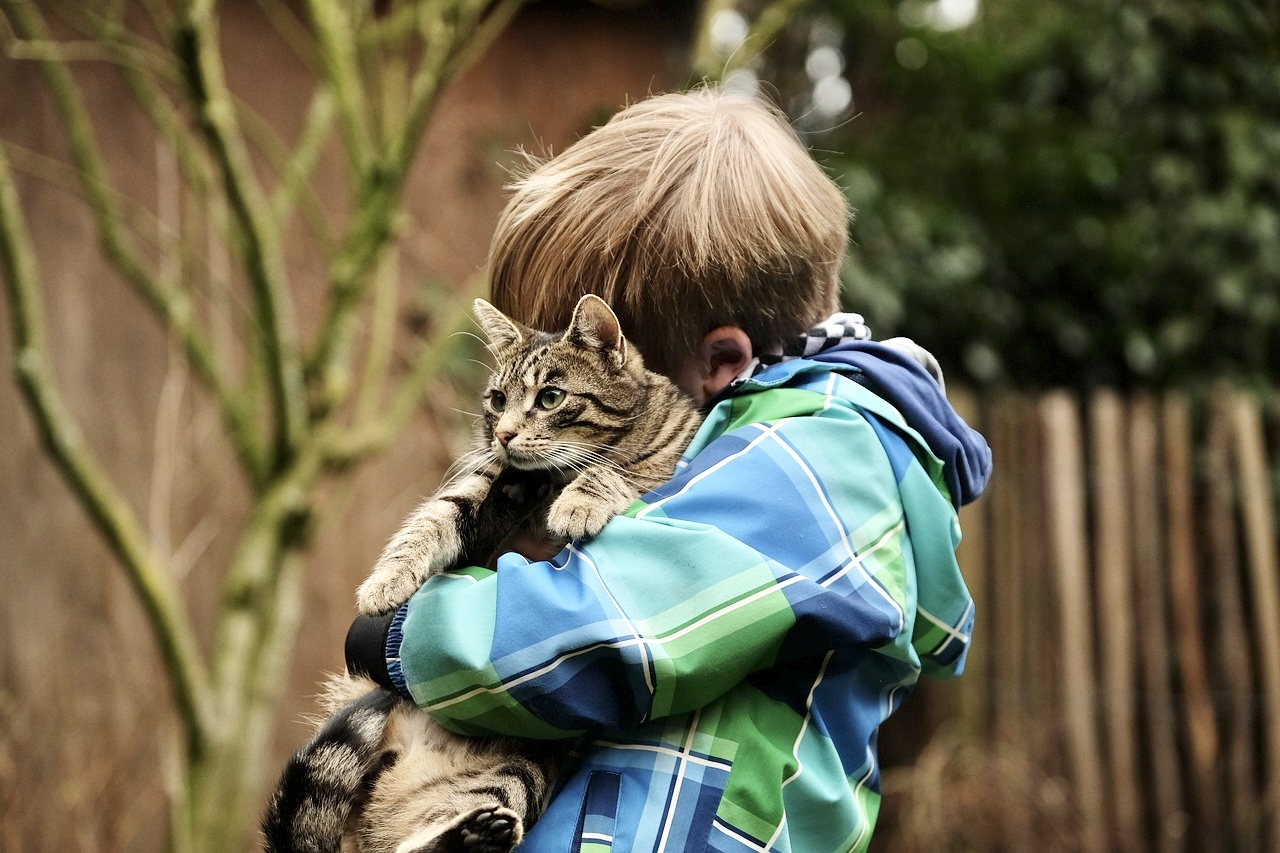Question: What is empathy for you? Do individuals with autism really understand what others feel? It is misunderstood when individuals with autism smile or laugh out loud when someone is feeling sad or crying. Why do you think individuals with autism react that way? Especially when it is situations like attending funeral why is that individuals with autism don’t feel sad?
Navin Israni: I would feel sad if I was really close to someone – not physically close but emotionally close. If the person doesn’t mean a lot to me or if I had negative experiences that soured my relationship with them, I likely won’t feel sad. It’s not that I can’t feel sad. I lost my mom to cancer in 2014 – 9 years ago. For the most part, her death doesn’t negatively affect me or hold me back anymore. I still feel bad about the way she died. She was in pain all through her final day. I wish her death wasn’t so painful.
My cook just bailed and took leave today because he’s not feeling well. I am not sad about him because –
- I don’t know if what he’s saying is true. He hasn’t sent me a pic of him in hospital gown. He might be genuinely ill, but I have no way of knowing that.
- His food isn’t great. If he made delicious food then I would miss him on his days off, and I might call him up and ask how he’s feeling and tell him to take rest.
- His decision to take leave has screwed my diet. I just came from a 4-day break when I had several heavy fattening meals at my cousin’s wedding. So, getting back on track with my healthy eating diet is crucial for me. And he’s abandoned me at this time. Of course, I don’t have sympathy for him.
Navi A: The unexpected reactions are likely related to a memory being triggered or a line of thought you wouldn’t expect. We might remember a happy memory of the person at a funeral, which is why we’re smiling in fondness. Or a funny time we had with them which would result in laughter. Those reactions might be because we care and are reliving the good times we had with them. Or I might smile at someone crying because I think they’re having an important breakthrough that will be good for them. Just ask us why.
I often don’t immediately feel my emotions, and also the stronger the emotion the more delayed it will be. I know one autistic person so grieved by the death of his beloved grandfather and also troubled why he doesn’t feel the emotion he expected. I know it’s from alexithymia, an inability to recognize emotions while you’re feeling them. Generally, strong emotions will dysregulate me in a way I won’t realise. I’ll get clumsier, have a harder time functioning, etc, but it won’t register that it’s because of the strong emotions that I’m feeling but don’t know that I’m feeling. This often results in me getting misty-eyed at even a touching scene but not quite registering it as an emotion until later. I also have to concentrate to read people’s emotions on their faces and it’s easier if you just tell me what you’re feeling. I’ve been in conversations with people that I later find out were arguments, but the person’s anger didn’t register with me because they didn’t say they were angry, even if their tone implied it.
I care a lot about people around me and often my way of caring is offering a systemic fix to their problem so they don’t have to suffer. Just words seem insufficient. One way of caring I’ve found, that is actually appreciated, is taking up an executive function burden so the person can do something else. I stayed inside washing dishes so my wife and her sister could have a good time with their mother. I did it so that they could have more time with their mother. But strictly speaking you might think I don’t like someone if I’m inside doing something else while they’re having conversation outside. So, it’s a matter of a unique autistic perspective.
Preeti Dixit: I think I understand how others feel as much as any other person. I can empathise more a person when I have experienced something similar to what they’re going through, and I empathise less when it’s not something I have experienced.
As far as inappropriate reactions are concerned, like Aniket mentioned, alexithymia plays a big role in it. When I feel intense emotions, I tend to either cry or laugh. My brain feels overloaded and unable to decipher or deal with what I’m feeling. It’s like when people say a person is in shock. When I receive shocking news, it’s like my brain freezes and my mind goes blank. To an observer, it will look like I feel nothing, when, in fact I’m feeling too much and my brain is not able to handle it so it shuts down. I will have a delayed reaction as the news sinks in, which would be to either laugh or cry even though I’m not exactly happy or sad, but shocked, overwhelmed, devastated, anxious, nervous, etc.
So, it’s not that we don’t feel sad. We definitely do. But we may not be able to express our sadness in a way that others can understand because we ourselves find it hard to understand.
It may take several hours or days for an emotion to sink in for me. So, I might have experienced something last week and the emotion is just sinking in for me and I might suddenly start crying in the middle of a party. It’s got nothing to do with what is happening now but people won’t understand that.
Jay Chandran: Mine is quite an odd story:
Story 1
- I grew up in boarding schools. I tend to mimic the emotions of people around me. I taught myself to read faces and communicate, and use humour to control emotions around me.
- 7th grade was the first funeral I attended. It was my grandpa. I was back from hostel and I couldn’t process the crowded house with people crying everywhere. I stood up and started telling jokes and funny stories for the next 30-40 mins. Making the crowd laugh or stop crying helped me control my emotions. I’m still remembered by my relatives as the kid who made people laugh at my grandpa’s funeral.
- Our processing styles are different. We all do different things to control or show our emotions.
Story 2
- Growing up, I learnt that I’m highly sensitive to the emotions around me and I’m very empathetic.
- I don’t know if I was trying to control emotions or people please to fit in. In my college days, I sort of became an expert in identifying my friends’ distress, even before they knew or talked about it. When I asked them what was wrong, they were taken by surprise on how I knew and how I was able to notice.
- I eventually got burned out reading people all the time. Having to overwork. Final year got chaotic. Friends groups were broken, they all had different priorities, etc. It was difficult to control. So, it added to the burnout and me spiralling into depression and insomnia. All the while, I was not sleeping, I was scripting conversations in my head on what went wrong, how to handle similar situations better, etc.
Story 3
- I’ve always had difficulties laughing or crying when I’m alone. I know that all the laughing I do outside is a performance. When I’m alone, I rarely laugh, and it happens once a month or so. After the day of feeling laughter, I do that for next 2-3 days. Then, it goes away. Same with crying. It rarely comes, and I remember how to cry for 2-3 days. Then, goes away.
- I’ve been in a constant burnout since 2011. So, this made emotions harder. Also, expressing emotions on the face is a neurotypical way of communication. It’s exhausting to maintain a laughing or sad face for long periods to pretend.
- I have stopped engaging with everyone and isolated myself for the last year due to confusion. Due to burnout hampering my processing abilities, I was having difficulties to talk, observe faces, replicate or show facial expressions, etc.
- When I got back to people after a long break, it was a stark realization. I couldn’t read faces at all. I couldn’t process social cues. I didn’t know when to talk and also forgot most of the words. It was disorienting.
- After the diagnosis, I understand most of my confusion. Also, the recent update on learning to unmask is, I’m laughing at the irony of serious situations and have a serious face during happy situations. Now, the generally mistaken face is an angry one. It looks like that’s the natural state. My relaxed face, that doesn’t move or express, is not an angry face.
Story 4
- My past therapists felt odd when I shared details of my past and showed no emotion to it. I kept telling them that all my past details are pieces of information that could solve my current issues. They wondered how I could separate my emotions and information.
- My current ND therapist says it’s just that we are objective in our approach. Sometimes, we know that it is rational to work on a solution, instead of emotions that would use up the limited energy we have.
- This has been a useful tool in my life. I’m able to delay impulsive emotions and stay composed even in chaotic, stressful situations. I see it as an advantage, of not wasting time on emotions and getting work done.
- We feel intense joy, sadness and other emotions. But, just like the dislike of small talk, it feels like a waste of energy to display short emotions through our faces.
- Also, the pattern seeing brain sees a repetition of pattern. So, if a situation gives out strong emotional response and that response has previously delayed figuring out solutions, then it feels pointless to make the same mistakes again and sit there feeling emotions, instead of fixing things.
All I have are stories. You have to pick up what parts resonate with your child. We all autistics are different. Our empathy is not expressive. We aren’t used to just empty solidarity. We try to fix things, instead of feeling emotions. Autistic empathy is way more intense. It’s like I’m immensely troubled by your distress, so I’ll sacrifice even my last bit of energy to help you figure out a way.








